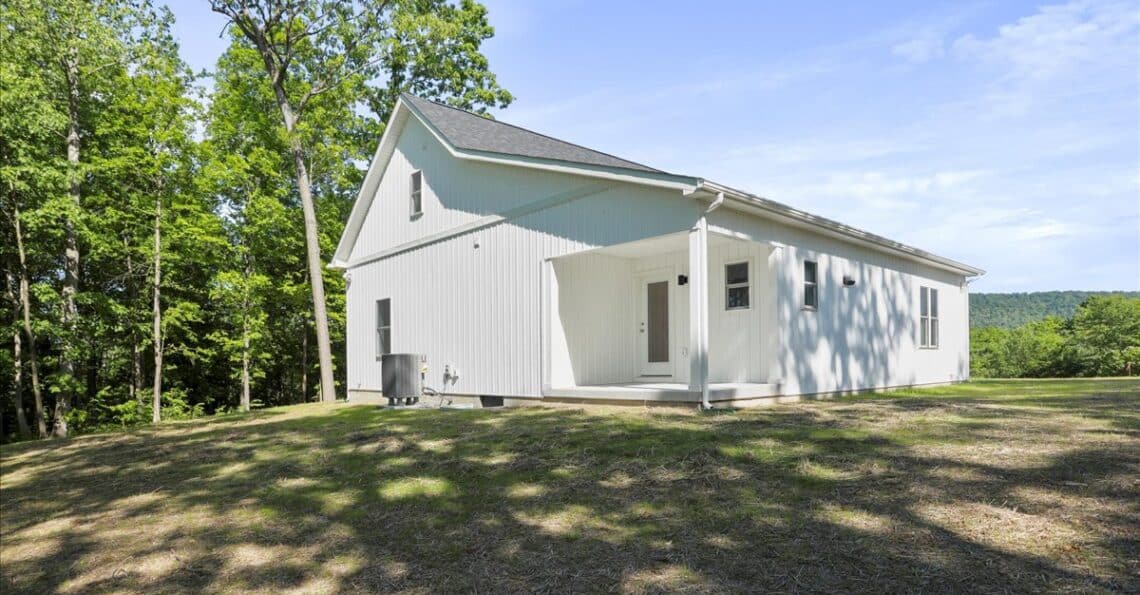
How Much Does It Cost to Build a Custom Home in WV in 2025?
In West Virginia, the cost to build a custom home typically ranges from $130 to $220 per square foot, depending on the location, finish level, and site conditions. A 2,000 sq. ft. home might cost between $260,000 and $440,000, excluding land and soft costs.
Understanding what goes into that number can help you plan more accurately, avoid surprises, and choose the right builder
Breaking Down the Costs: What Goes Into Your Homebuilding Budget
The total cost of a custom home isn’t just the price of lumber and drywall—it includes everything from land prep to final finishes. Here’s a detailed breakdown of typical construction costs in West Virginia.
| Category | Typical Cost Range | Notes |
|---|---|---|
| Land Purchase | $20,000 – $100,000+ | Depends on location, utilities, acreage |
| Site Preparation | $5,000 – $25,000 | Clearing, excavation, grading, utilities |
| Permits & Fees | $2,000 – $5,000 | Varies by municipality and complexity |
| Foundation | $15,000 – $35,000 | Crawlspace, slab, or basement |
| Framing | $40,000 – $80,000 | Lumber prices and design complexity |
| MEP (Mechanical, Electrical, Plumbing) | $30,000 – $60,000 | HVAC, ductwork, rough-ins, fixtures |
| Exterior Finishes | $20,000 – $50,000 | Roofing, siding, masonry |
| Interior Finishes | $30,000 – $100,000+ | Cabinets, counters, flooring, paint |
| Custom Features | Varies widely | Smart systems, porches, built-ins |
| Total Construction | $260,000 – $440,000+ | For a 2,000 sq. ft. custom home |
What Affects the Cost of Building a Custom Home in WV?
Every custom home is different, and many variables impact the final price. Here’s what influences your budget the most—and how to make smarter choices.
Location and Terrain
Where you build in West Virginia has a big effect on your cost. Lots with steep grades, dense trees, or limited access often require more excavation, longer driveways, or septic and well systems—all of which add to your total.
Square Footage and Layout
Bigger homes naturally cost more, but the price per square foot often decreases as square footage increases. Complicated layouts, multiple levels, and specialty rooms can also push your budget upward.
Design Complexity
Simple rooflines and rectangular floor plans are cheaper to build. Custom designs with bump-outs, gables, or vaulted ceilings raise both framing and finish costs.
Finish Level and Material Quality
Builder-grade materials are budget-friendly, but most custom homeowners opt for higher-end finishes. Think hardwood floors, tile showers, custom cabinetry, stone counters—these choices add up quickly.
Labor, Subcontractors, and Builder Reputation
Experienced builders with established crews tend to deliver smoother timelines and higher-quality work. Inconsistent labor or poor subcontractor management can lead to delays and cost overruns.
How Long Does It Take to Build a Custom Home in WV?
Understanding the timeline helps you set realistic expectations. From design to move-in, most custom homes in West Virginia take 7 to 12 months depending on complexity, weather, and builder availability.
Typical project timeline:
- Pre-construction and design: 1–3 months
- Permits and approvals: 1–2 months
- Site prep and foundation: ~1 month
- Framing and rough-ins: ~2 months
- Interior finishes and inspections: 2–5 months
Weather conditions, change orders, and materials availability can cause delays, so working with a transparent builder helps minimize surprises.
Financing Options for Building a Home in WV
Unlike buying an existing house, building requires a special type of financing. Most homeowners use a construction-to-permanent loan, which allows you to fund the build in stages and then convert to a traditional mortgage when the home is complete.
Lenders typically require:
- Detailed builder contract and specs
- Approved land or lot purchase
- Credit and income verification
It’s smart to work with a builder who can coordinate directly with your lender, supply required documentation, and help guide you through the draw schedule.
Permits, Inspections, and Building Regulations
Every county in West Virginia has its own permitting and inspection process. You may need:
- Building permit
- Septic and well permits
- Zoning approvals
- Final occupancy inspection
Some builders handle the entire permitting process on your behalf, while others require homeowners to be more involved. At Miller’s Residential, we manage permits, schedule inspections, and ensure full code compliance from start to finish
Custom Builder vs. General Contractor: What’s the Difference?
While these terms are often used interchangeably, they play slightly different roles:
- A custom builder handles the full design-build process, offering in-house or partnered architecture, design services, and construction.
- A general contractor typically manages subcontractors and may or may not be involved in the design phase.
Miller’s Residential Creations serves as both—we guide your home from concept to completion with one experienced team.
Should You Buy Land Before Hiring a Builder?
It’s tempting to start your journey by shopping for land. But many buyers regret buying property before consulting a builder. That’s because not all land is buildable—or it may need costly grading, utility connections, or variance approvals.
Bringing in a builder before you close on land ensures:
- Better understanding of total development costs
- Faster zoning and permitting
- Smarter site planning and house orientation
Is It Cheaper to Build or Buy a Home in West Virginia?
Buying an existing home is faster and usually comes with a lower up-front cost. But custom building allows you to:
- Avoid expensive remodels
- Choose energy-efficient systems
- Customize layout and finishes
Over time, new builds often deliver lower maintenance costs and better resale value—especially if you plan to stay long-term.
Start Building Smarter with Miller’s Residential
Ready to explore building your dream home? At Miller’s Residential Creations, we help West Virginia families design, plan, and build custom homes that fit their lifestyle and budget. We make the process approachable, transparent, and enjoyable—from day one.